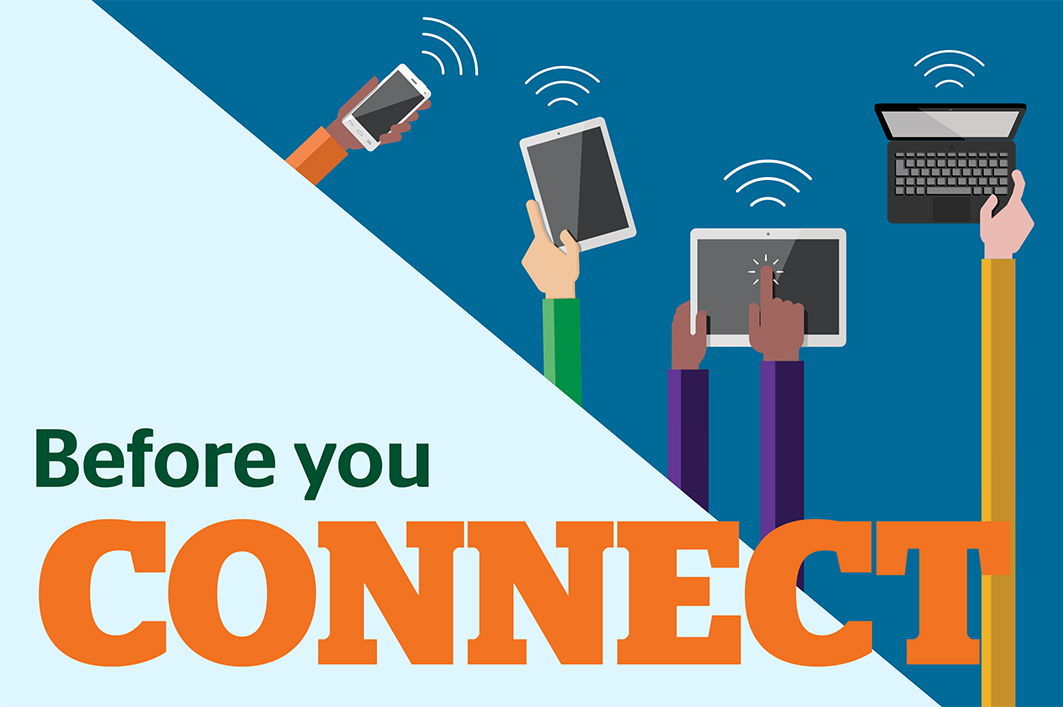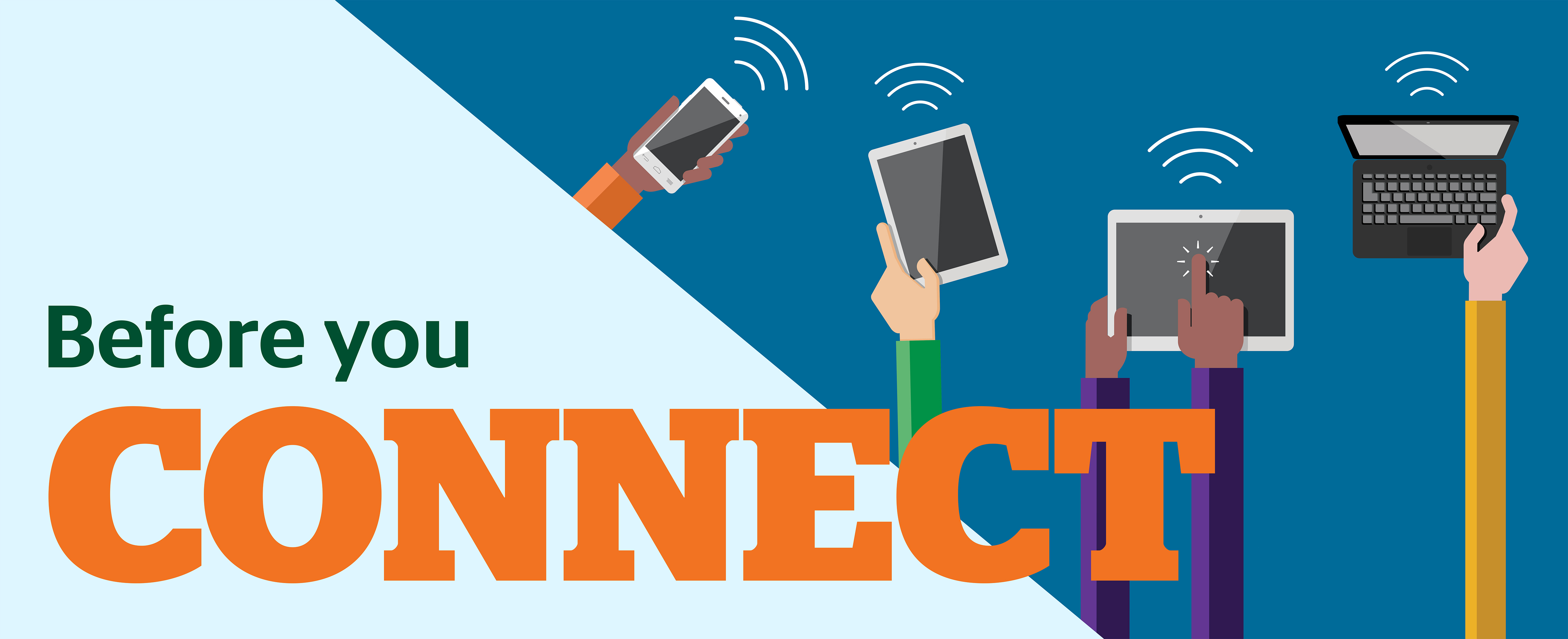Connecting to the Internet has expanded to every aspect of our lives—from collaborating with peers and colleagues to communicating with friends and family.
As more applications and software are made available and accessible online, the Internet has even made it possible to successfully work and learn remotely. However, a remote lifestyle comes with its own set of security risks. How can you make sure that you are connecting to the University securely when off-campus?
Follow the tips below when working or learning remotely:
- Use a safe and trusted network. Do not use Wi-Fi offered in public places—such as local restaurants and coffee shops—to access University resources or any site that handles sensitive data. Public networks are rarely encrypted, which could potentially allow your data to be readable by cyber criminals. Open networks can reveal which websites are visited, usernames and passwords entered, and videos streamed. Only connect to networks that you trust, such as your secure home network.
- Update the software on your devices often. Software developers frequently publish updates that fix bugs and address security vulnerabilities. Some applications—like your operating system—allow you to enable an auto-update feature, which applies to your home modem, router, phone, and computer. Frequently updating your software may help protect your device(s) against security threats.
- Ensure that you have anti-virus installed and it is up-to-date. Anti-viruses protect your devices from malicious software that can infect them.
- Use strong and varied passwords for all your devices and logins. Add complex characters, including upper and lower case letters and special characters, to increase the length and strength of your passwords.
- Store your work/class files on University cloud storage solutions, instead of storing University data on your personal device. This allows for safe data storage and secure collaboration.
- Never leave your device unattended. Shut down your computer or lock your screen whenever you leave it for any length of time. Ensure your device is configured to screen lock or sleep after a short period of inactivity.
- Use multi-factor authentication wherever possible. Multi-factor authentication (MFA) requires you to provide a password and requires a second method of authentication using a phone, tablet, or token. The University's MFA adds layered security to your UM accounts.
- Use the University's VPN when accessing UM resources and data. Using the U's virtual private network (VPN) while accessing UM resources will further protect your online privacy and data security.
Have questions? We're here to help!
If you have questions about cybersecurity, or if you want to learn more about how to stay safe online, contact the Information Security Office (ISO) at: infosec@miami.edu





